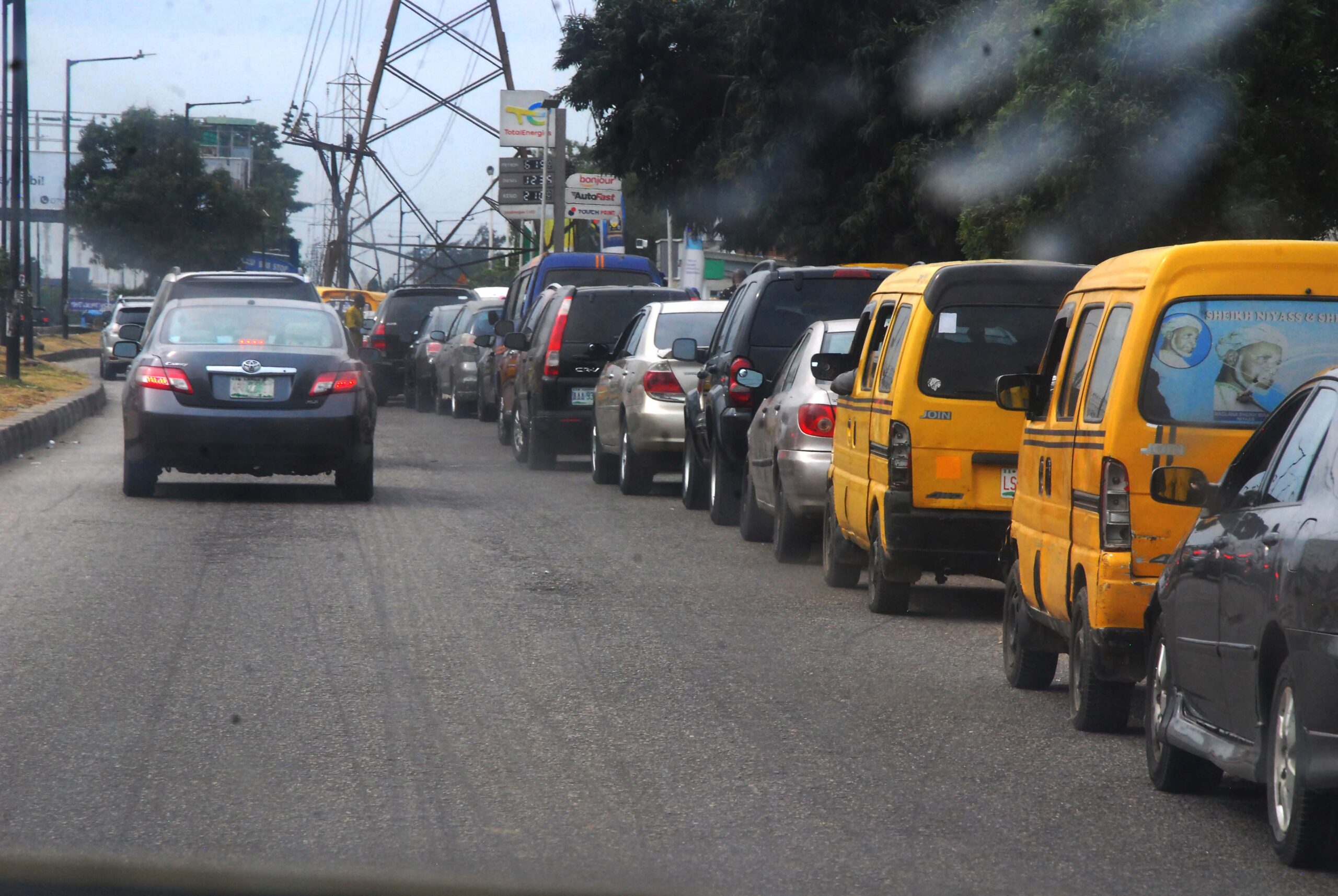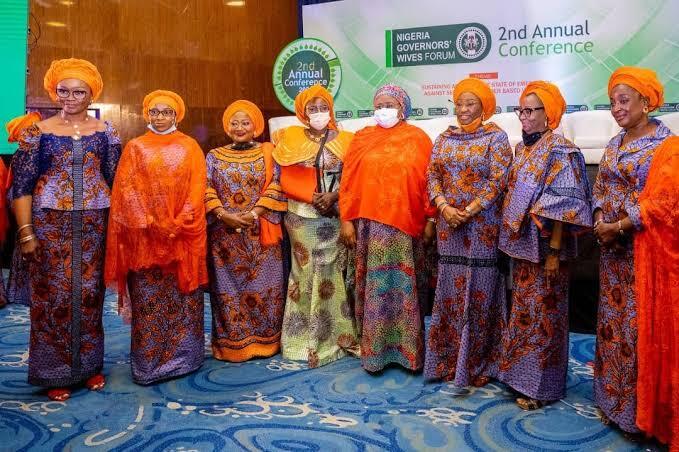
• We don’t have petrol to sell, marketers cry out
• NNPC blames the situation on panic buying
• Struggling fuel stations, depots retrench employees, await Dangote ‘bailout’
Nigerians may have to prepare for a worse premium motor spirit (PMS) scarcity as the Nigerian National Petroleum Company Limited (NNPCL) depots run out of supply amidst denial of the return of fuel subsidy and accumulated $6.8 billion debts owed to trading partners.
Marketers, some of whom have not received products in 18 months, are awaiting the commencement of sales by Dangote Petroleum Refinery to resume active business while mass retrenchment hits the struggling downstream sector.
While fuel queues have persisted in the country for more than two months while black marketers sell the products for over N1,200 per litre, marketers yesterday told The Guardian that most depots and fuel stations do not have products and, indeed, face mass retrenchment of their workers.
Some depots and fuel stations, The Guardian was told, have not received products in the last 18 months and are merely surviving on the sale of lubricants and diesel while defaulting on loans taken to build downstream infrastructure.
NNPCL is blaming the situation on distribution challenges and panic buying – the same explanation the state oil firm offered previously. But marketers who spoke suggested that the prevailing situation may be far from that.
Sources at the Depot and Petroleum Marketers Association of Nigeria (DAPMAN) told our correspondents that almost all the depots in the country are out of PMS and some only received one cargo in the last 18 months.
While most retail stations are shut down in Lagos, Abuja and other cities, the Petroleum Products Retail Outlets Owners Association of Nigeria (PETROAN) insists they have no product to sell, stressing that they are only looking forward to the commencement of sales by Dangote Petroleum Refinery.
The Independent Petroleum Marketers Association of Nigeria (IPMAN) members also told The Guardian that they relied on the NNPC and depot owners and have indeed paid for products but their consignments have not been delivered.
National President of IPMAN, Abubakar Maigandi, said most of the stations of his members are empty.
Maigandi said: “The challenge is that we rely on NNPCL and depot owners. We have paid for products, but we are not loading. We are not hoarding products. If we have, we will sell.
“These private depot owners immediately go there to purchase products from them. They hike the price so we don’t have any alternative than to buy products from them since we cannot get the required quantity of product that we are supposed to use for our retail outlets.”
He disclosed that there is an ongoing discussion with NNPCL to give the group products directly instead of telling them to go to the private depot owners and purchase.
With such a situation, the President said the marketers would be able to get their allocation directly from NNPCL as it was being done.
While Nigeria’s daily PMS consumption had dropped to about 40 million litres daily according to the Nigerian Midstream Downstream Petroleum Regulatory Authority (NMDPRA) last year, the return of subsidy has led to struggling of the white products and increased consumption level.
There have been allegations that most traders who supply NNPCL PMS are refusing to honour the request from NNPCL, which is running bankrupt with a debt of over $6.8 billion.
The development drastically reduced the level of PMS coming into Nigeria as tenders to buy PMS have declined to about 850,000 tonnes instead of the typical one million tonnes in previous months.
President of the Petroleum Products Retail Outlets Owners Association (PETROAN) Billy Gillis-Harry told The Guardian that NNPCL may be hiding critical information on the prevailing situation.
“No product. NNPCL is only rationing,” Gillis-Harry said, adding that they “are battling with something that they have not been able to explain to us”.
He noted that the retailers have not been able to service bank loans and can’t pay salaries, stressing that they are only expecting Dangote Refinery to change the situation.
In Abuja, long queues, which started in June have persisted and become a norm as motorists either spend two to three hours on the key or pay black marketers, who have been smiling to the bank since the scarcity returned about N1,200 for a litre against the N568 per litre is sold at NNPC retail outlets.
While the NNPCL is yet to begin production of gasoline from its Port-Harcourt refinery eight months after commissioning the plant, there have been allegations that the current scarcity in the country is due to its inability to pay oil traders.
Checks by The Guardian revealed that some independent filling stations in Lagos sell at the rate of N800 leading to frustrations and concerns among Nigerians.
Many are questioning the efficiency of the distribution network and the NNPCL’s ability to manage the country’s fuel supply.
Ordinary Nigerians are expressing frustrations at the continuous scarcity. A Bolt driver, Adeola Olatunji, said the issue of fuel scarcity has turned into a norm in the country which happens every month.
“It is becoming too frequent, and it is affecting our daily lives and businesses. The government needs to find a lasting solution. NNPCL needs to be more transparent about what’s going on. We can’t keep facing this problem every few months. It’s bad for the economy and bad for the people,” he said.
Fatima Bello, a Lagos-based trader expressed frustration at the ongoing queues in fuel stations, stating in her words as disheartening for the country.
“Every time there’s scarcity, transport fares go up, and it becomes difficult for us to move our goods, the government keeps telling us not to panic, but how can we not panic when we don’t know when this will end,” she said.
Nigerians are calling for more decisive action from the government to prevent these disruptions from becoming a regular occurrence.
NNPCL has attributed the scarcity to distribution challenges and has urged motorists to avoid panic buying.
The company in a statement by Chief Corporate Communications Officer, Olufemi Soneye, expressed regrets on the tightness in fuel supply witnessed in some parts of Lagos and Abuja which is a result of distribution challenges
“The company further urges motorists to shun panic buying as it is working round the clock with relevant stakeholders to restore normalcy,” he said.
The NNPCL has urged Nigerians to remain calm, assuring them that the distribution challenges are being addressed and that fuel supply will normalize soon. The corporation also emphasised that there is no need for panic buying, which only exacerbates the situation.
The Nigerian Midstream and Downstream Petroleum Regulatory Authority (NMDPRA) has issued a stern warning to petroleum marketers involved in the hoarding of Premium Motor Spirit (PMS) and engaging in black market sales.
The regulatory body emphasised that such practices are illegal and would result in the immediate withdrawal of licenses for any marketer found culpable.
The warning by the Executive Director of Distribution Systems, Storage and Retailing Infrastructure, NMDPRA, Ogbugo Ukoha, comes amidst concern over the increasing incidents of PMS hoarding, which has significantly contributed to the ongoing fuel scarcity across the country.
Ukoha urged marketers to take the warning seriously as it poses safety concerns for Nigerians, noting that no marketers should underdispense.
“NMDPRA embarks on a war against the illegal sale of petroleum products especially PMS in jerry cans. Filling stations are advised to desist from servicing illegal peddlers, failure to do so would result in the suspension of retail licenses,” the regulator said.






